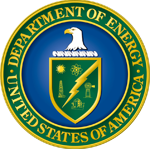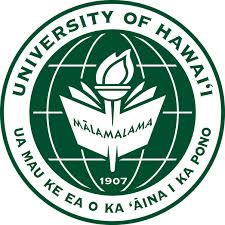Advancing the Production of Algae-Based Products through Collaborations
Cellana and Neste Oil Enter Into Multi-Year, Commercial-Scale Off-Take Agreement for Algae Oil Feedstock for Biofuels
Neste Oil
Cellana, a leading developer of algae-based feedstocks for biofuels, animal feed, and Omega-3 nutritional oils, announced today that it has entered into a multi-year off-take agreement with Neste Oil, the world’s leading supplier of renewable diesel, for commercial-scale quantities of Cellana’s ReNew™ Fuel algae oil feedstocks for biofuel applications.
Under the agreement, Neste Oil has committed to purchase crude algal oil produced by commercial-scale algae biorefineries that Cellana is developing worldwide. The agreement is contingent on Cellana’s future production capacity and on compliance with future biofuel legislation in the EU and US, among other factors. The agreement between Cellana and Neste Oil is non-exclusive and allows each company to enter into additional agreements with other parties.
Read the Cellana press release »
Read the Neste press release »
Visit the Neste website »
Advancing Research and Development of Algae-based Technologies for Biofuels and other Valuable Coproducts

The Algae Testbed Public-Private Partnership (ATP3), supported by a $15 million grant from the DOE, is tasked with advancing research and development of algae-based technologies for biofuels and other valuable coproducts. Led by the Arizona Center for Algae Technology and Innovation (AzCATI) at ASU, members include the National Renewable Energy Laboratory, Sandia National Laboratories, Cellana, Touchstone Research Laboratory, Valicor Renewables, California Polytechnic University San Luis Obispo, Georgia Institute of Technology, University of Texas at Austin, and Commercial Algae Management. Their mutual goals are to facilitate innovation, empower knowledge creation and accelerate growth of the emergent algal energy industry via this high-level collaboration.
Read about how Health Enhancement Products, Inc. established formal partnership with Arizona Center for Algae Technology and Innovation and ATP3.
Visit the ATP3 website to learn more.
Watch ATP3 video below:
Cellana has Received $5.5 million USDA / DOE Grant to Develop New Algae-based Animal Feeds

Cellana LLC has received a $5.5 million U.S. Department of Agriculture grant to develop affordable animal feed from marine algae to facilitate the large-scale production of feedstocks for biofuels, aquaculture and other animal feeds. The project began May 1, 2011 and runs through April 30, 2014.
Cellana will receive $5,521,173, which will be combined with $1,643,661 provided by Cellana for the project, titled “Developing a New Generation of Animal Feed Protein Supplements.” Under this USDA grant, Cornell University will be conducting large-scale animal feeding trials using algae biomass provided by Cellana to identify the most economical and efficacious strains of algae.
Cellana has established world-class strategic partnerships, collaborations and alliances to utilize the best information and technology available to produce algae and related products at economic scale.
Cornell Consortium/Department of Energy (DOE)

The U.S. Department of Energy announced in June 2010 an investment of up to $24 million for three research groups to tackle key hurdles in the commercialization of algae-based biofuels. Cornell has been selected to lead, and Cellana is participating in, one consortium that will examine large-scale production of fuels and feed from microalgae grown in seawater. Tasks include integrating new algal harvesting technologies with pilot-scale cultivation test beds, and developing marine microalgae as animal feed for the aquaculture industry. This consortium is eligible for up to $9 million of funds from the DOE.
National Alliance for Advanced Biofuels & Bioproducts (NAABB) / Department of Energy

Cellana, as a member of the National Alliance for Advanced Biofuels and Bioproducts (NAABB) Consortium, is participating in a nearly $44 million investment for advanced biofuels.
The NAABB consortium NAABB will develop a systems approach for sustainable commercialization of algal biofuel (such as renewable gasoline, diesel, and jet fuel) and bioproducts. NAABB will integrate resources from companies, universities, and national laboratories to overcome the critical barriers of cost, resource use and efficiency, greenhouse gas emissions, and commercial viability. It will develop and demonstrate the science and technology necessary to significantly increase production of algal biomass and lipids, efficiently harvest and extract algae and algal products, and establish valuable certified co-products that scale with renewable fuel production. Co-products include animal feed, industrial feedstocks, and additional energy generation. Multiple test sites will cover diverse environmental regions to facilitate broad deployment.
Genetic Adaptation and Screening of Marine Algae to Increase Lipid Yield and Photosynthetic Efficiency for Biodiesel Production

Beginning in 2006, Cellana began a government-funded research program, entitled “Genetic Adaptation and Screening of Marine Algae to Increase Lipid Yield and Photosynthetic Efficiency for Biodiesel Production.” The approx. $700,000 program was funded and managed by the National Defense Center of Excellence for Research in Ocean Science (CEROS), based in Hawaii. The CEROS project supported, in part, key research and production activities at the Company’s pilot production facility in Kona in 2006 and 2007. The CEROS program helped to demonstrate the application of the Company’s technology for the large-scale production of algae strains capable of producing commercial significant amounts of crude oil for biodiesel and other renewable fuels. The CEROS Program was originally created under an initial $5 million grant provided by the Defense Advanced Research Projects Agency (DARPA) in 1993 and discontinued operations in 2012. CEROS worked to advance innovative concepts and new approaches to technology while fully leveraging existing facilities and infrastructure in Hawaii and demonstrating beneficial commercial utility for the Department of Defense (DOD). CEROS was a State of Hawaii agency administratively attached to the Department of Business, Economic Development and Tourism (DBEDT).
For more information on CEROS, see http://www.ceros.org
University of Hawaii


